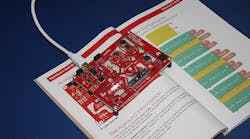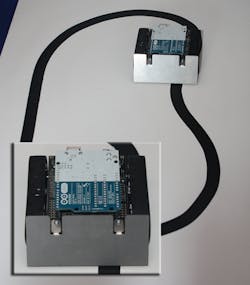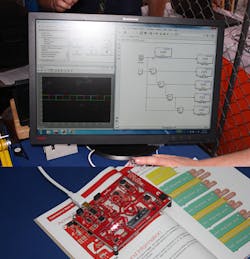The Future of STEM Education: MathWorks and the Maker Movement
A core focus of the “maker” movement is education, whether for newcomers getting their first taste of science, technology, engineering and mathematics (STEM) applications at school or industry veterans looking to learn something new. At Maker Faire 2014, Electronic Design sat down with Paul Kassebaum, who handles Maker community relations at MathWorks, to discuss what’s going on at the company and how it relates to makers.
Maker Faire’s “come as you are” attitude and blend of the arts and science was what first attracted MathWorks to the community. The math software development company is home to the well-known MATLAB and Simulink programming environments used for algorithm development, data analysis, visualization, numeric computation, and simulation. Its main mission is to take high-level code and auto-generate low level code, creating algorithms from a variety of devices such as littleBits, Arduino, and Raspberry Pi. MathWorks partners with teacher trainings and classes at maker spaces to make math more tangible, pseudo-disguising it within fun, hands-on applications.
MathWorks had a bevy of demonstrations at its MakerFaire booth, showcasing MATLAB and how easy it is to start coding. For instance, using an Arduino Uno and a few line sensors enables visual creation of an algorithm that keeps the robot on a defined path (Fig. 1). The Digital Sandbox platform (Fig. 2) is a learning platform powered by a microcontroller (MCU) that can be used to create algorithms that, for instance, send off delayed alerts to LEDs.
Essentially, the visual experience to a traditionally difficult field such as math involves breaking down complex problems into parts. This breakdown is integral for an introduction into STEM, which often can be intimidating. For younger students, Kassebaum suggests summer camps as a great jumping off point—full immersion in a tech-based, hands-on environment for a limited period of time. For those in college and older, many technical colleges offer introductory one-off classes in specific subjects.
This approach is exactly what the maker movement is about: Give tough subject matter tangibility in order to open up interested individuals’ eyes and hopefully to a wealth of new ideas. Applications that require entering your social security number a minimum of 50 times are not part of the maker movement. Nor do you need to spend hundreds of thousands of dollars on a dorm room the size of a shoe box. You just have to be open to try something new.


